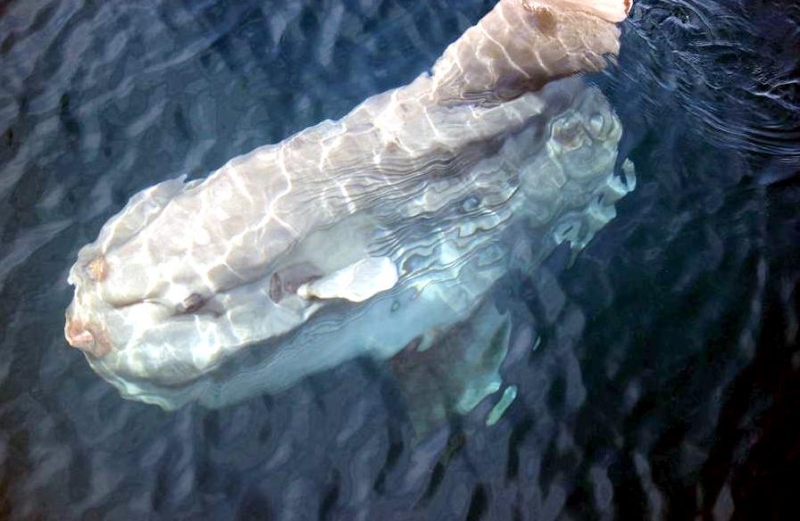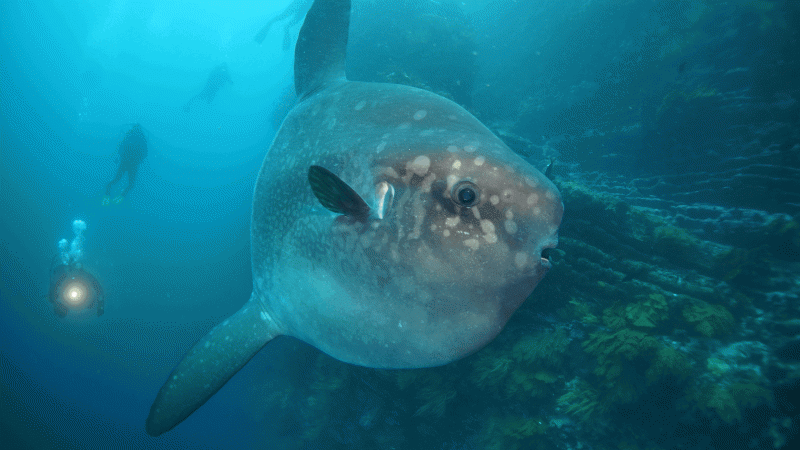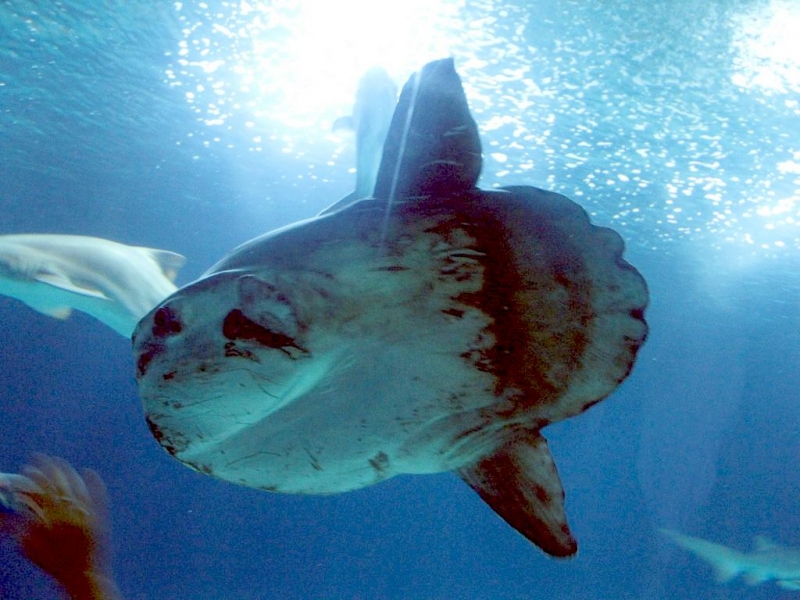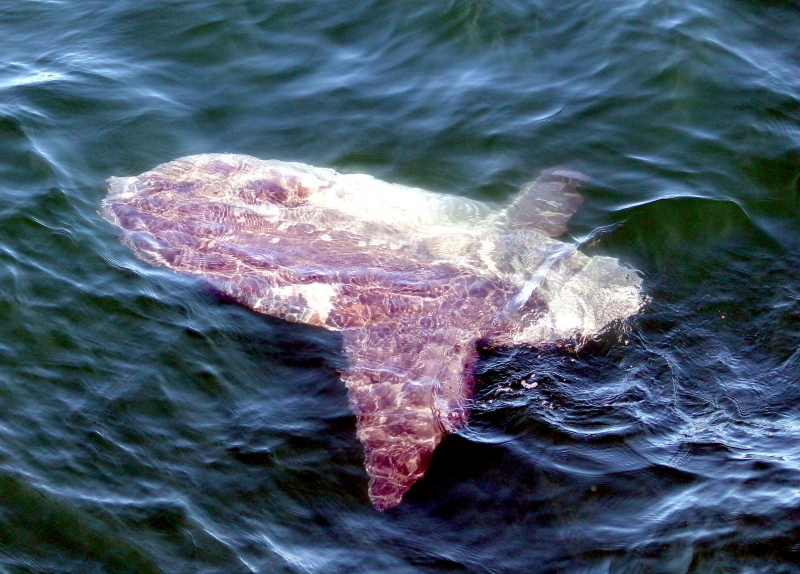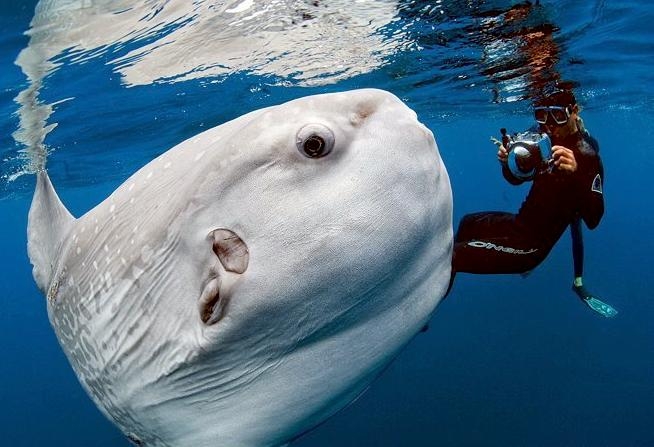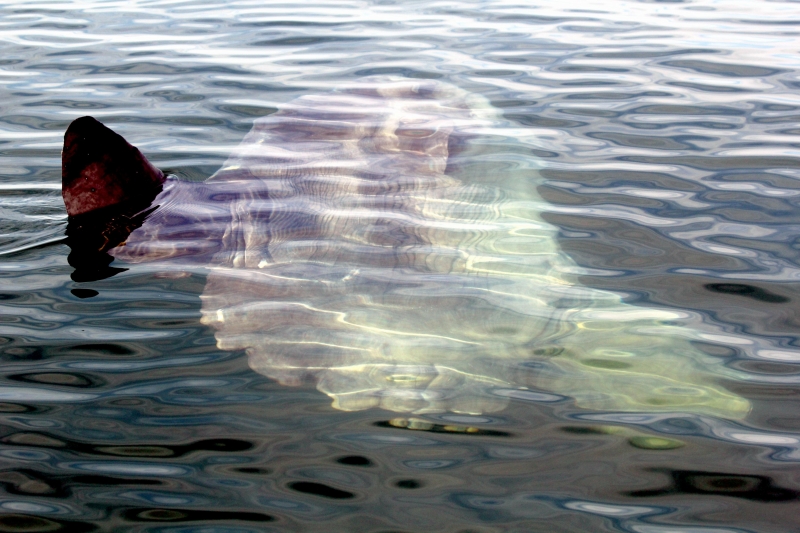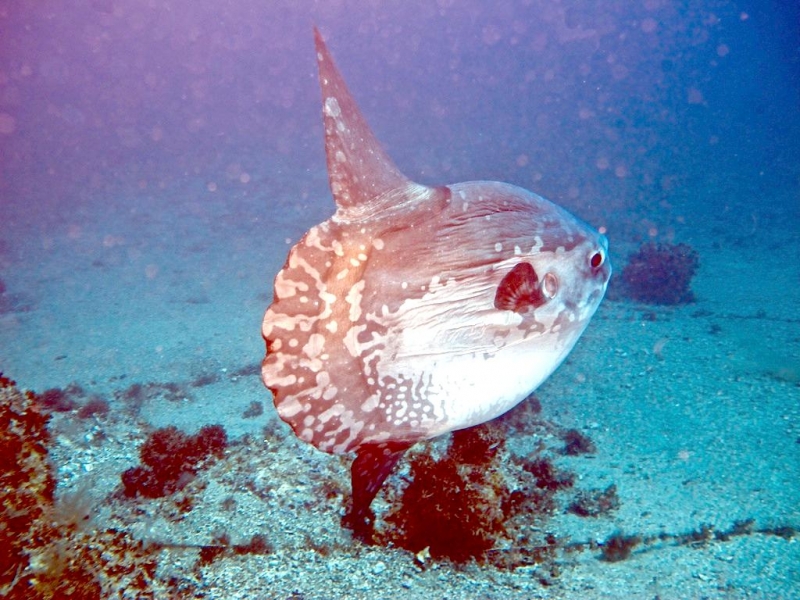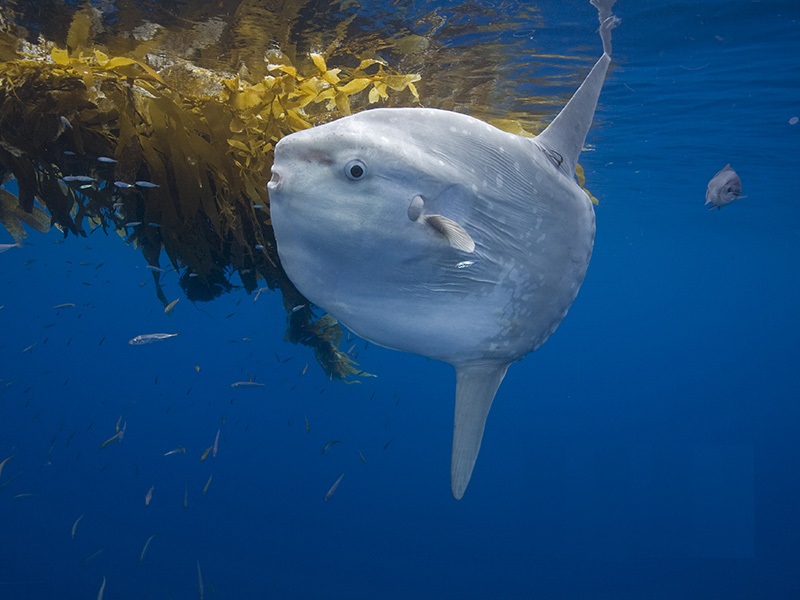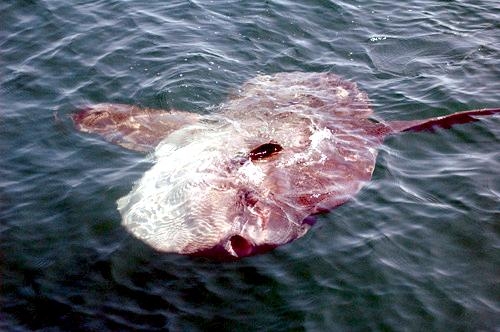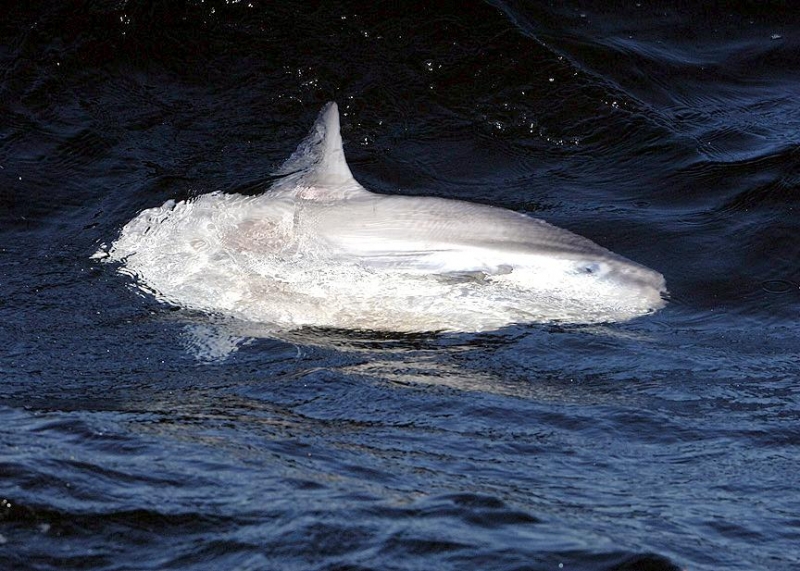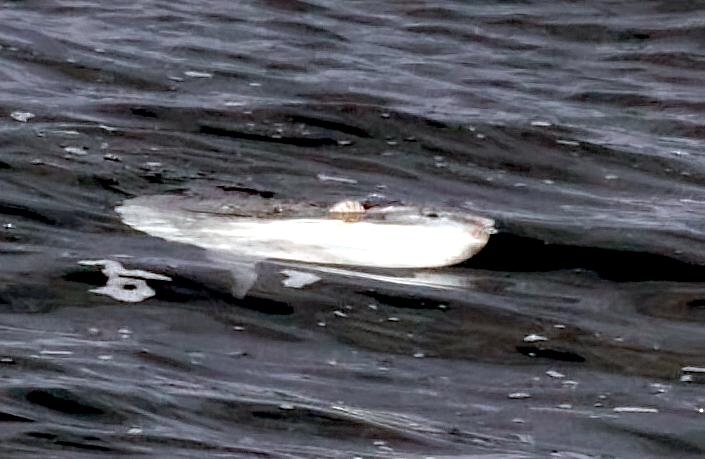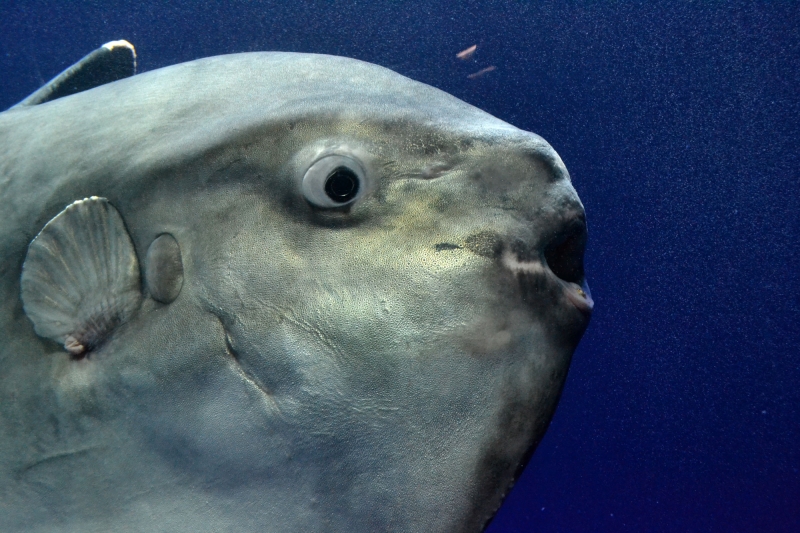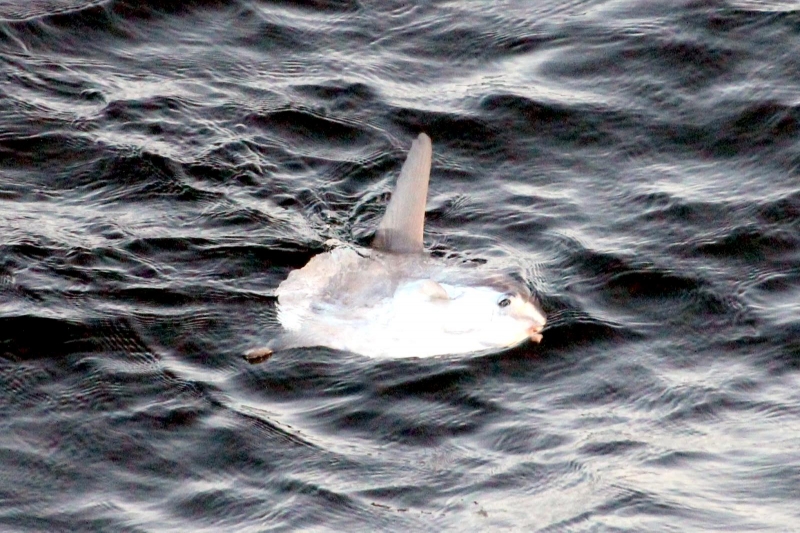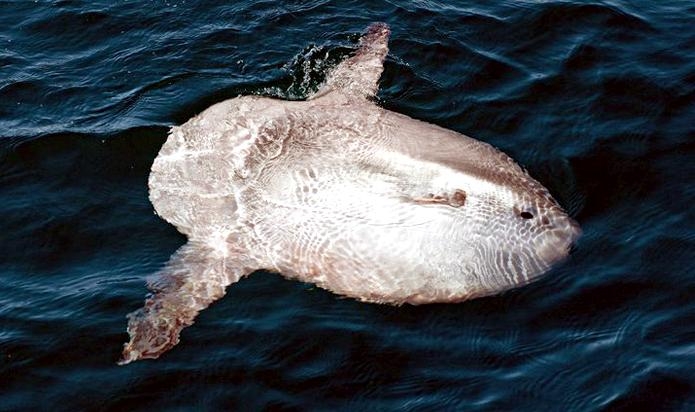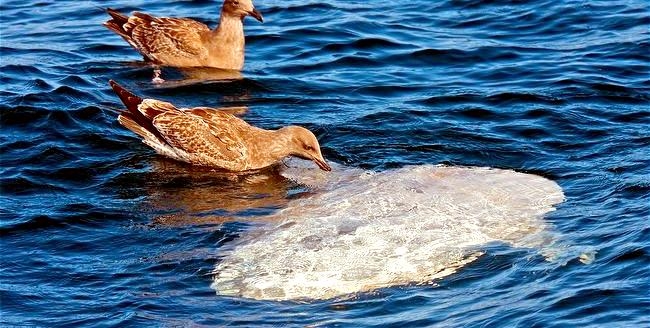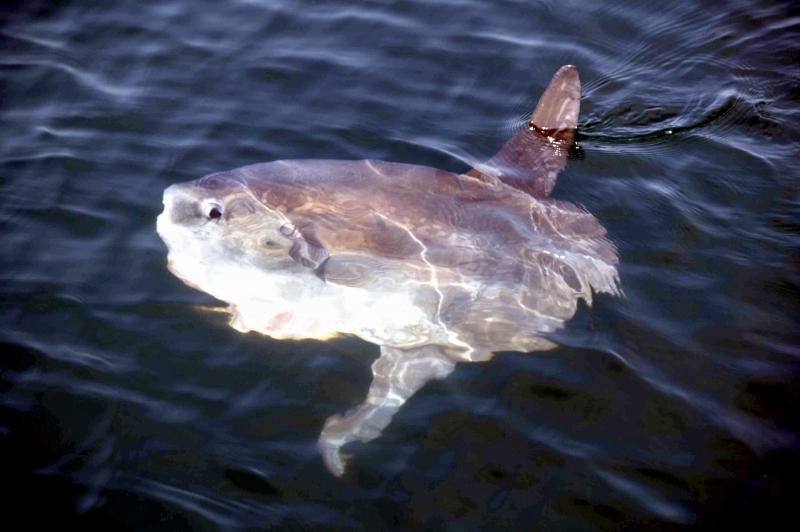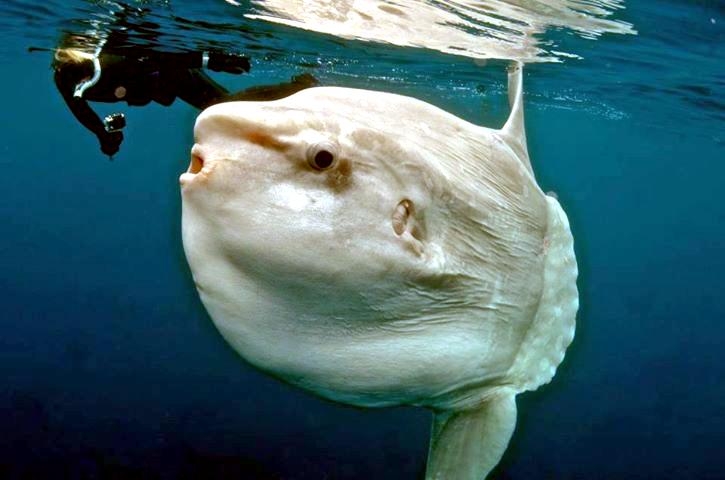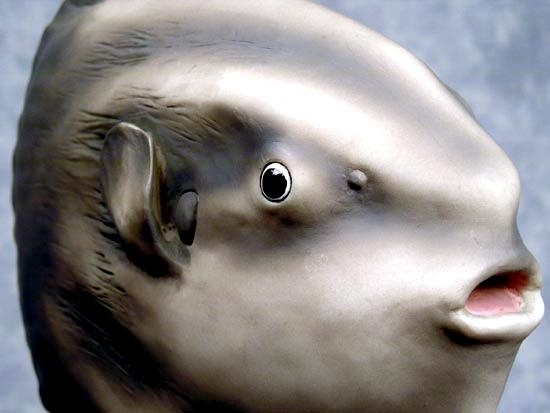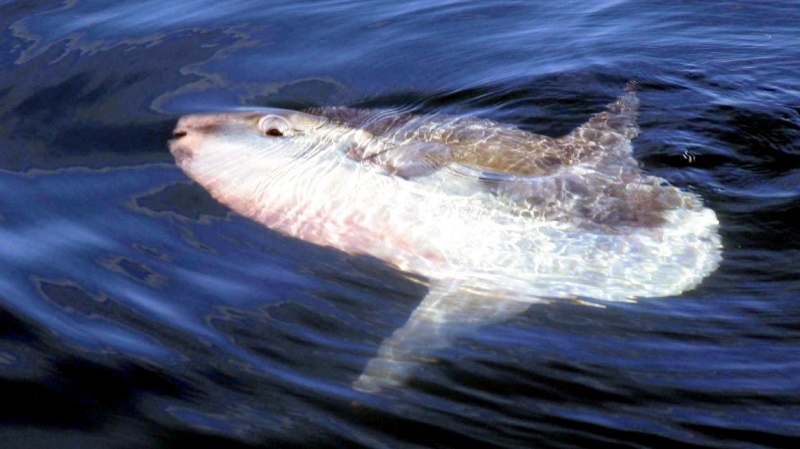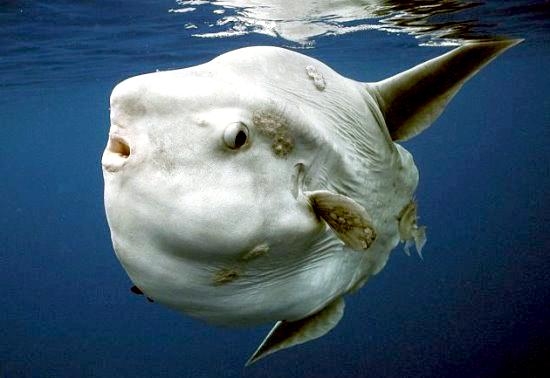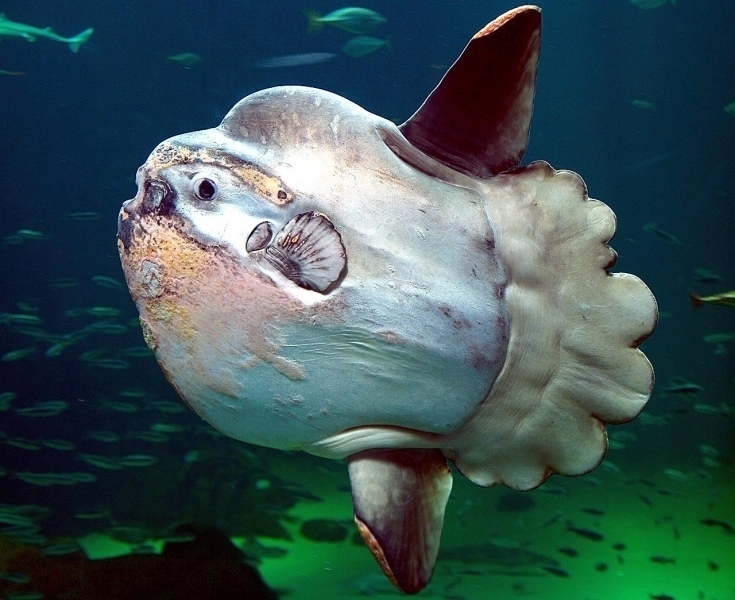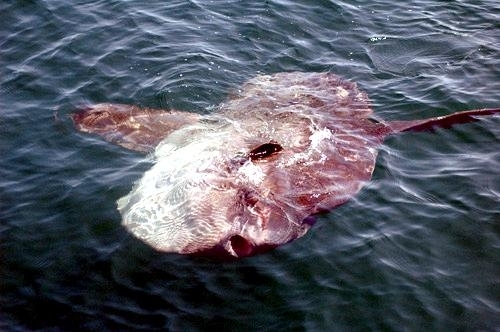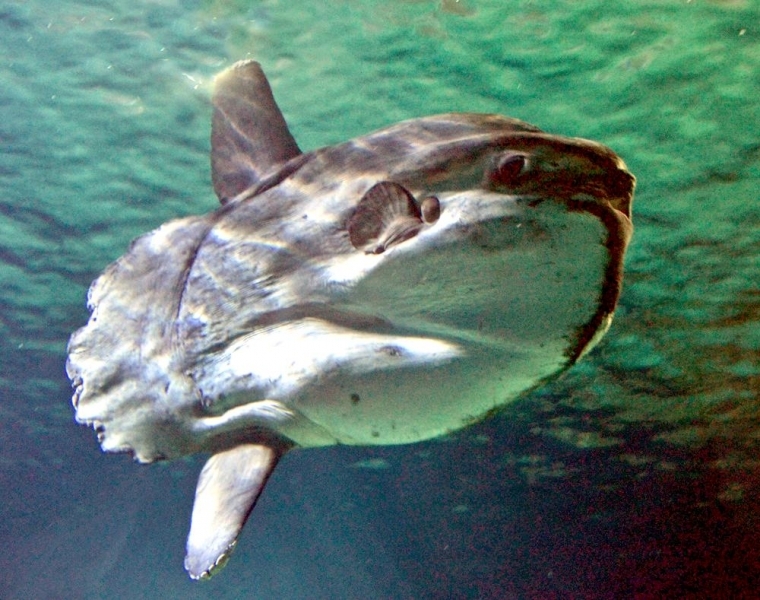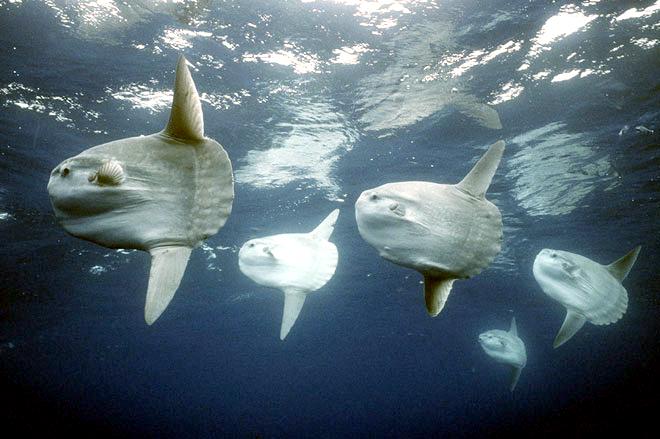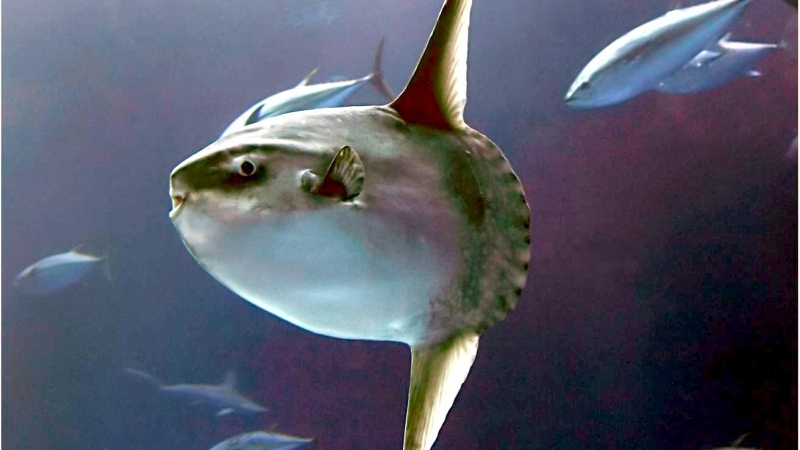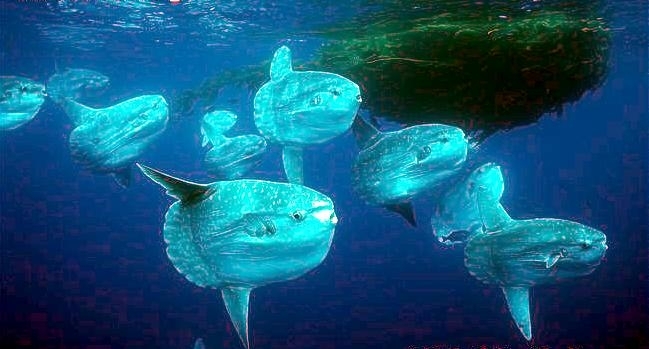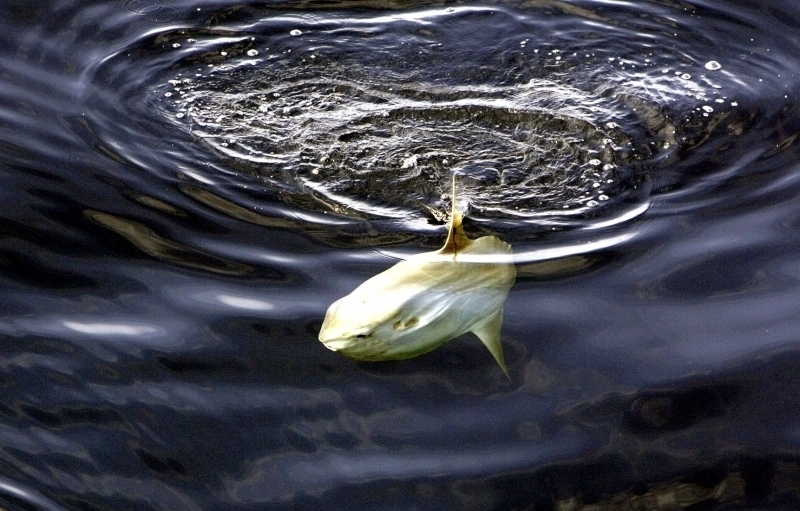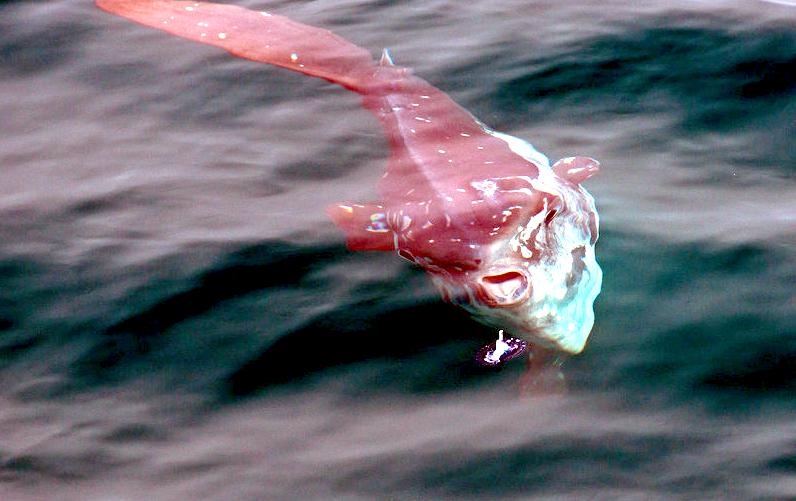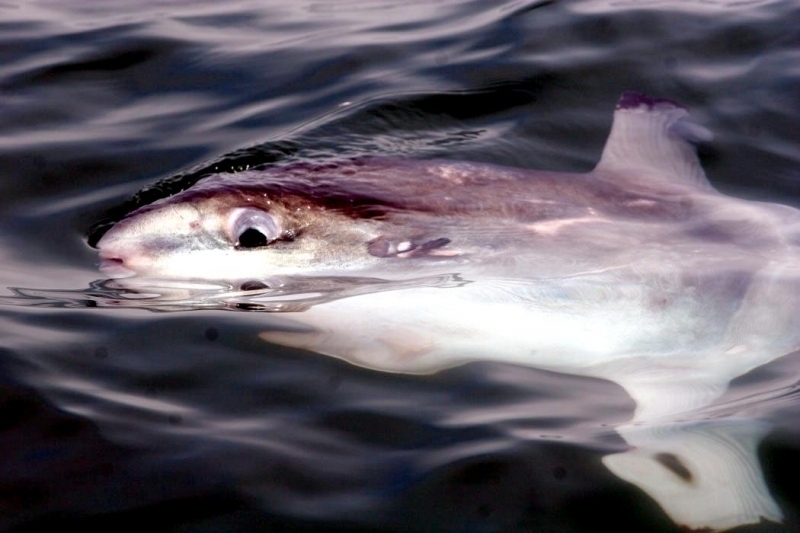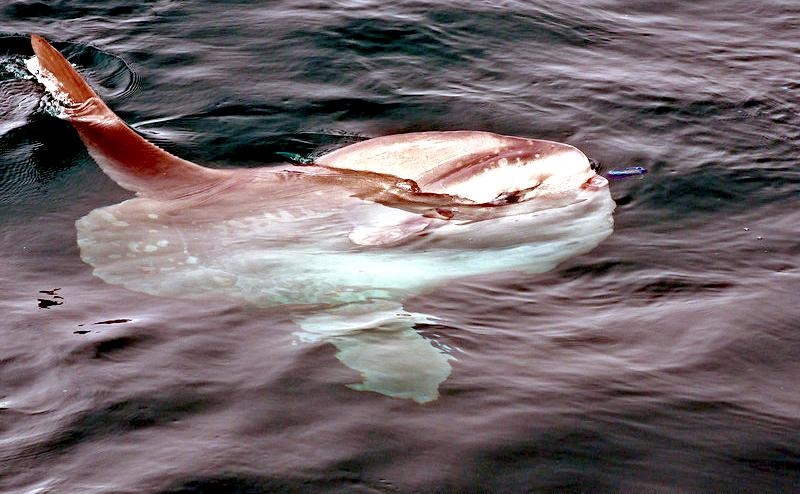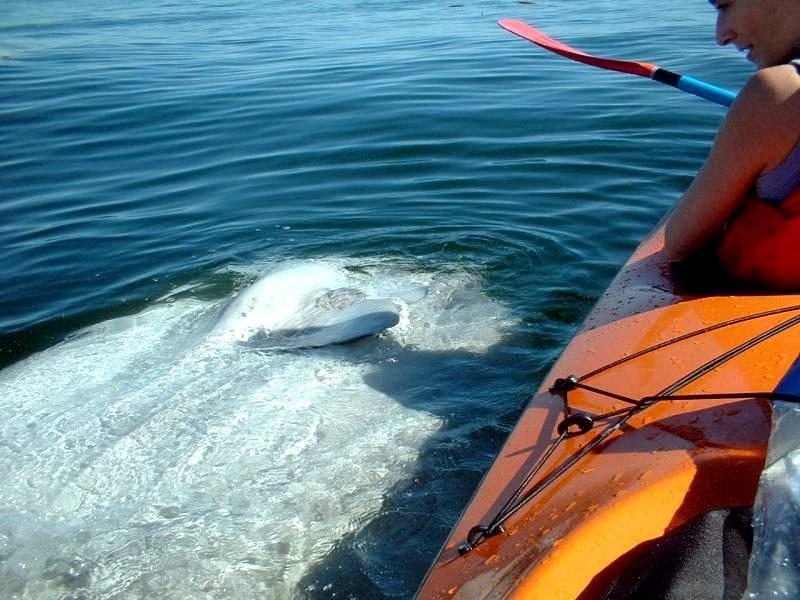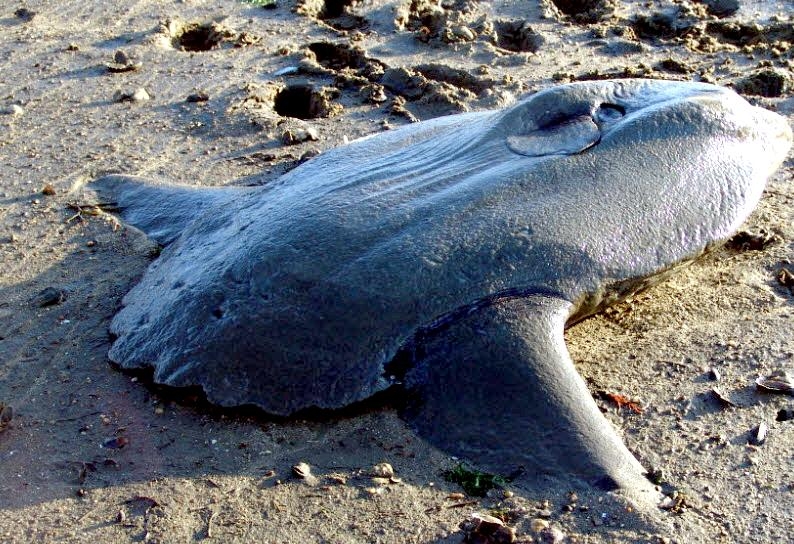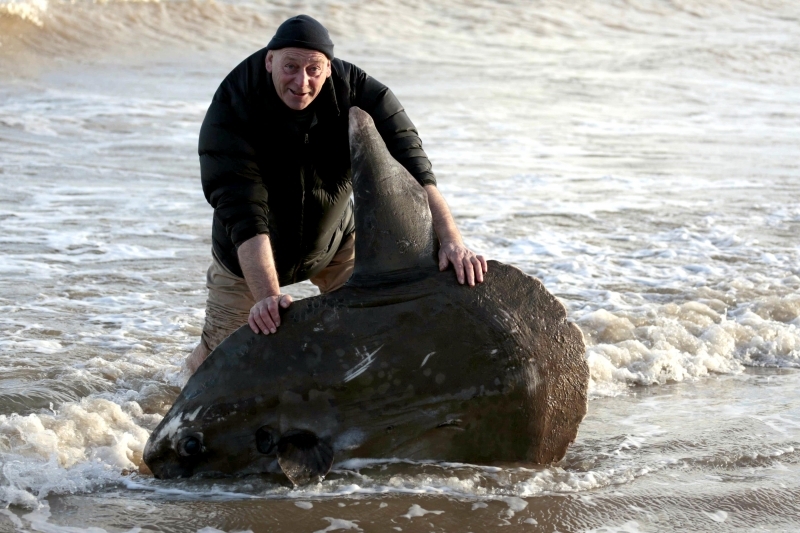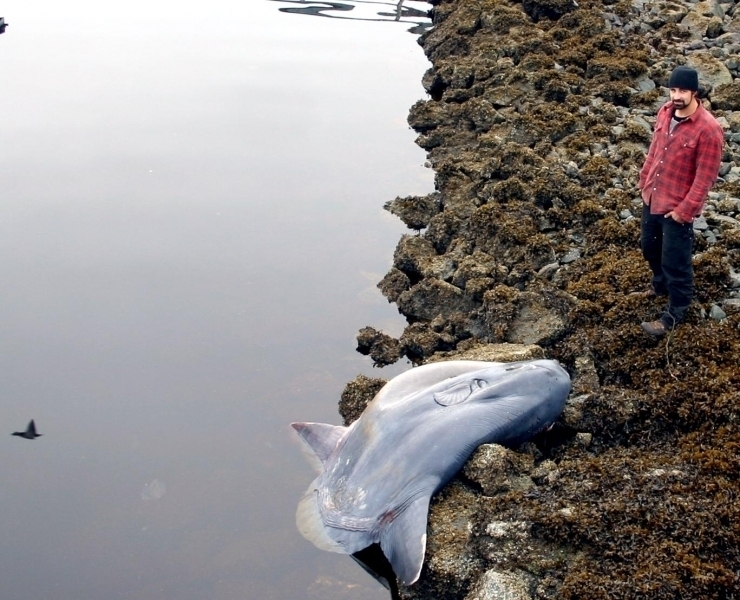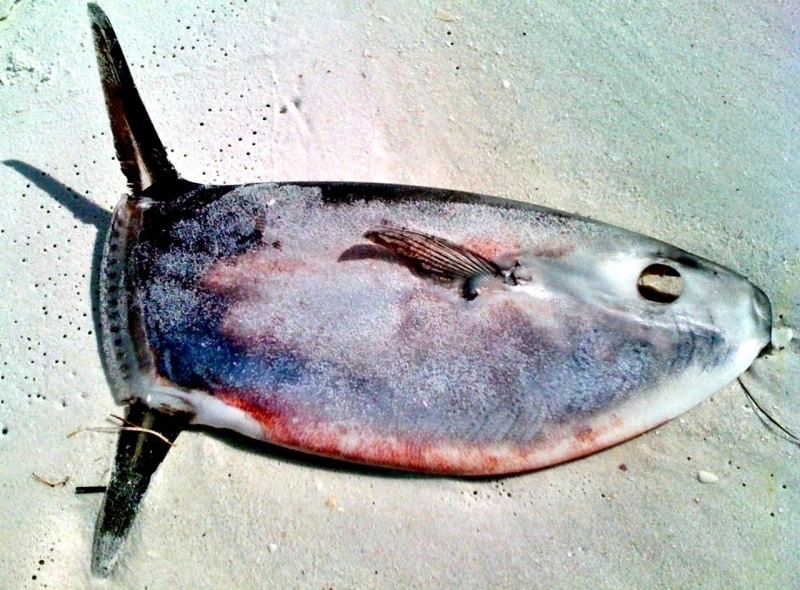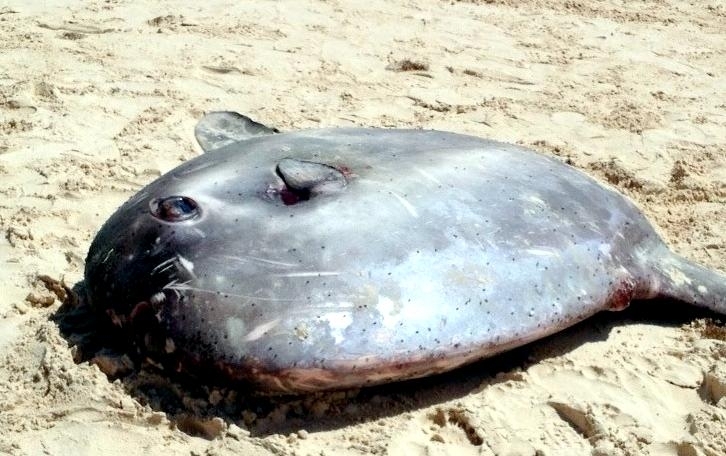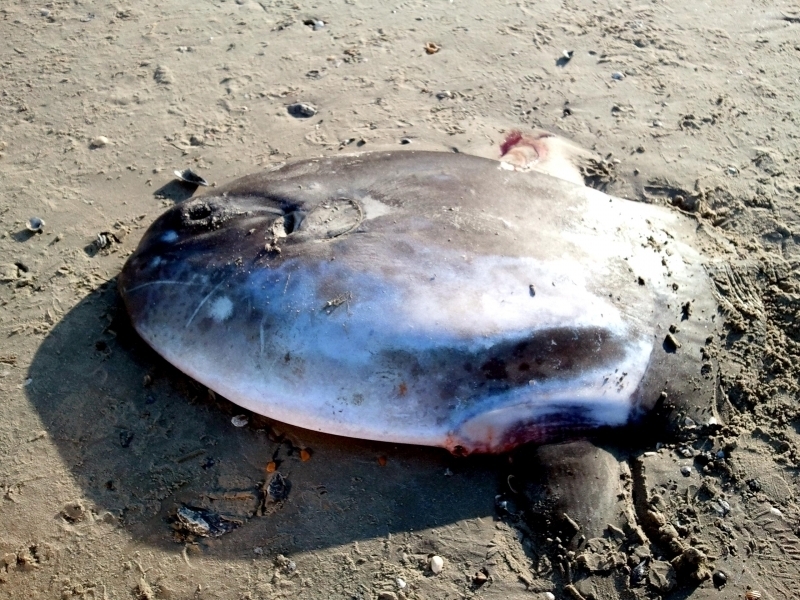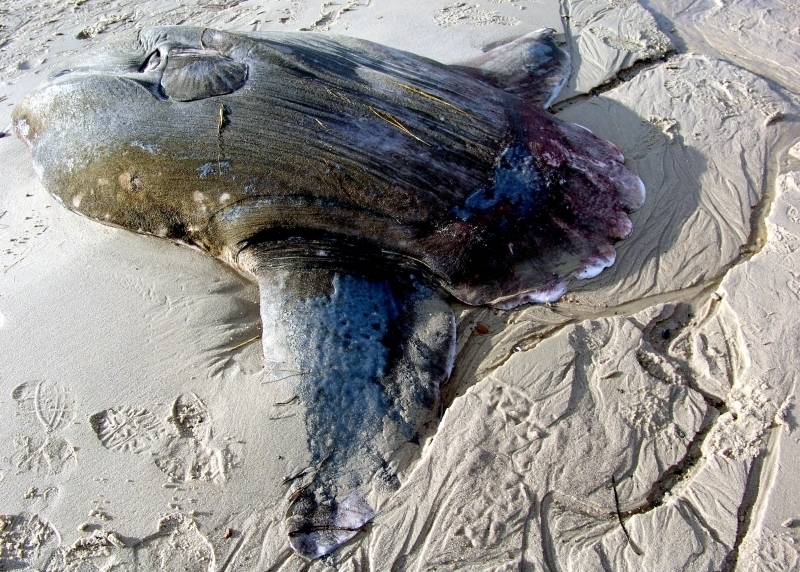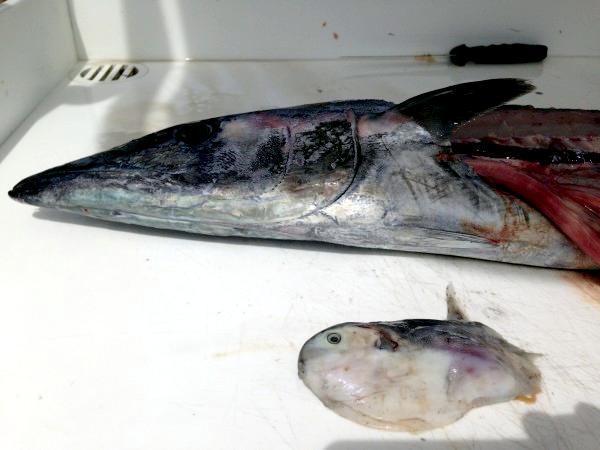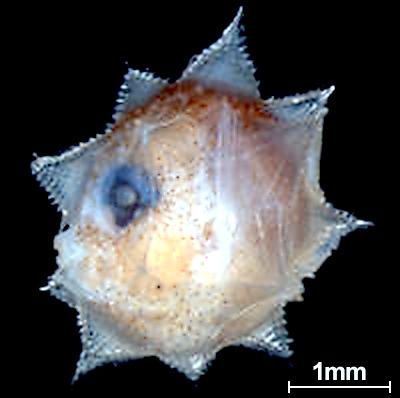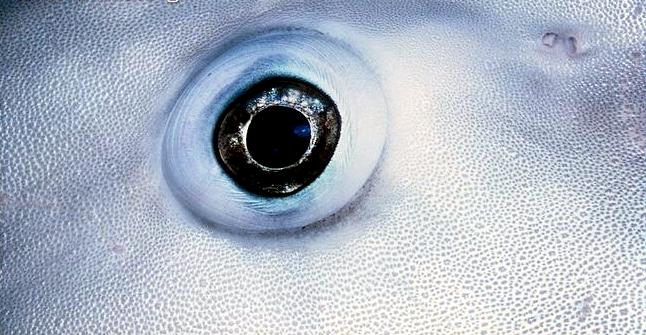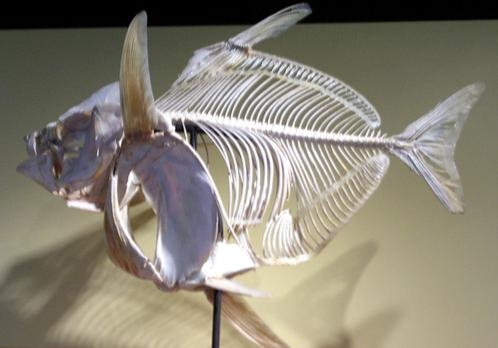“Mola mola”
The Ocean Sunfish is also called a Mola and at first glance, looks like the invention of a mad scientist. The word mola comes from Latin and means millstone–in reference to these fishes’ roundish shape. The common name “Ocean Sunfish” comes from their habit of lying atop the surface of the ocean appearing to sunbathe. Huge and flat, these silvery-gray fish have tiny mouths and big eyes that vanish into an even bigger body with a truncated tail. Topping out around 5,000 pounds, they are the world’s heaviest bony fish. With their tank-like bodies, Ocean Sunfish were clearly not built for life in the fast lane but they hold their own against faster fishes and are able to live in almost all of the world’s oceans. They are known to spend time near the ocean surface but tagging shows that Ocean Sunfish are also prolific divers and migrate long distances at depth. Ocean Sunfish hatch from tiny eggs but grow to weigh more than a pickup truck, increasing in size 60 million times along the way. That’s the equivalent of a 1 kilogram tadpole turning into a 60 ton frog. They grow to a maximum of about 10 feet long and are often taller than they are long, up to 14 feet from dorsal fin tip to anal fin tip. They have a truncated tail fin referred to as a clavus—a scalloped fringe of muscle along their blunt rear end, which they use as a rudder. Inside an Ocean Sunfish’s tiny mouth, are 2 pairs of hard teeth plates shaped with a slightly curved ridge that look kind of like a bird’s beak.
Ocean Sunfish eat mainly sea jellies from big Moon Jellies to tiny Comb Jellies. To break their dinner into manageable pieces they don’t chew; they suck the jellies in & out of their mouths until they’re reduced to gelatinous chunks. They can enjoy this potentially painful diet because of a mucus-like lining in the digestive tract that keeps them from getting stung. Ocean Sunfish also sometimes eat squid, fish, crustaceans, sponges, sea stars and odd seafloor creatures called crinoids. Ocean Sunfish are slow & deliberate swimmers. Adult Ocean Sunfish lack a gas-filled swim bladder, the organ that gives most bony fish exquisite control over buoyancy. Scientists impressed by their slow-motion swimming at first guessed that they must drift wherever ocean currents take them. Ocean Sunfish in Southern California have been tracked swimming 26 kilometers in a day, at a top speed of 3.2 kilometers per hour which to give them credit, is not far off the speed of a Yellowfin Tuna when it’s just out cruising. Maybe because they swim so slowly, they tend to be covered in parasites. Nearly 40 different kinds have been recorded, including a few Gooseneck Barnacles that were discovered living in the throat. Ocean Sunfish are related to Pufferfish and just-hatched juveniles are puffy, round and covered with spines like their relatives. Pufferfish are extremely poisonous in specific parts of their bodies, but scientific studies have so far found no trace of the toxin in Ocean Sunfish. In fact, strange as it may sound for a parasite-ridden fish with skin that’s thick & rubbery like a car tire, the Ocean Sunfish makes a popular meal in parts of Asia and is also used in medicine. Apart from humans, other predators include Northern Sea Lions, sharks and Killer Whales.


